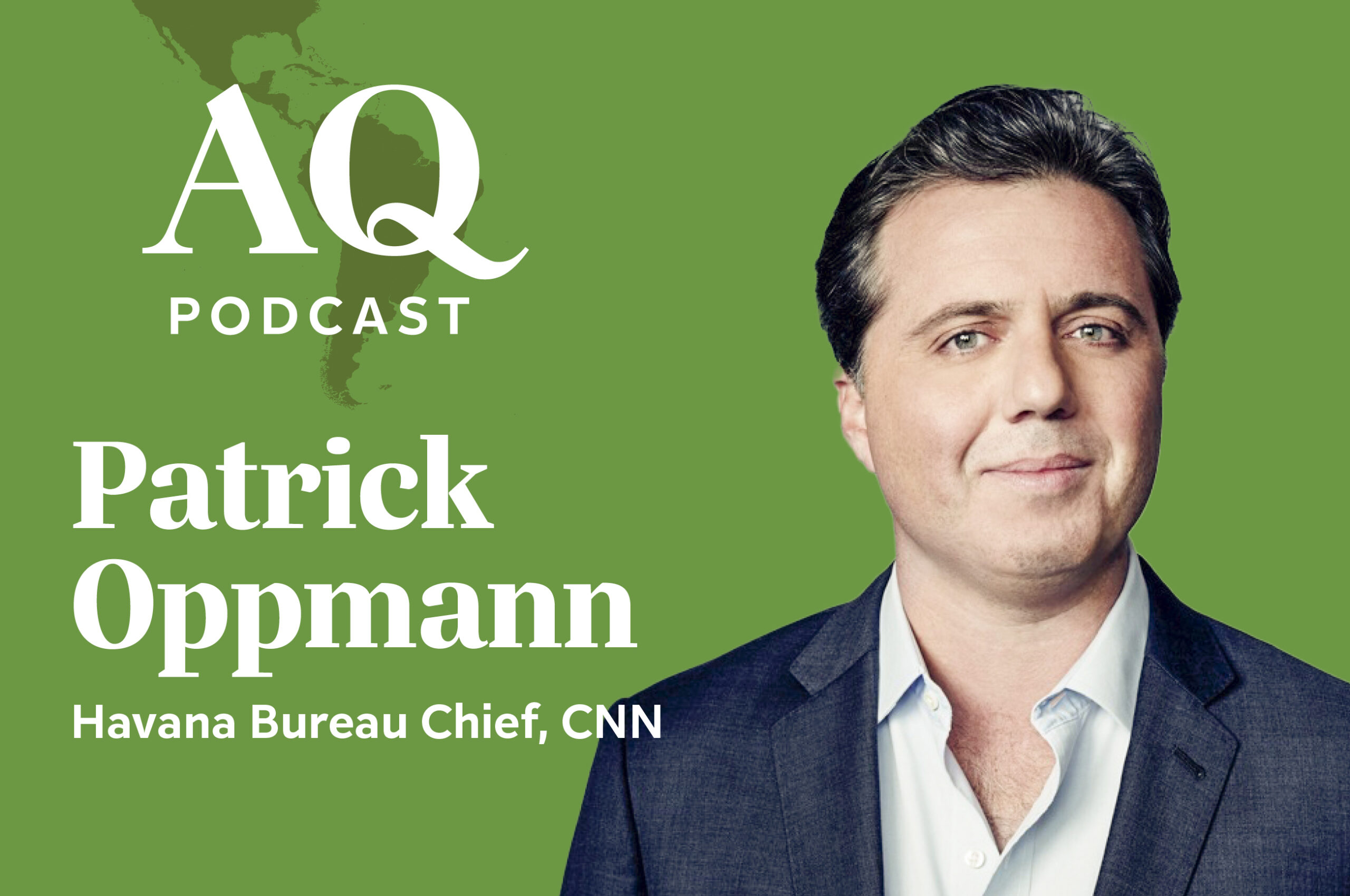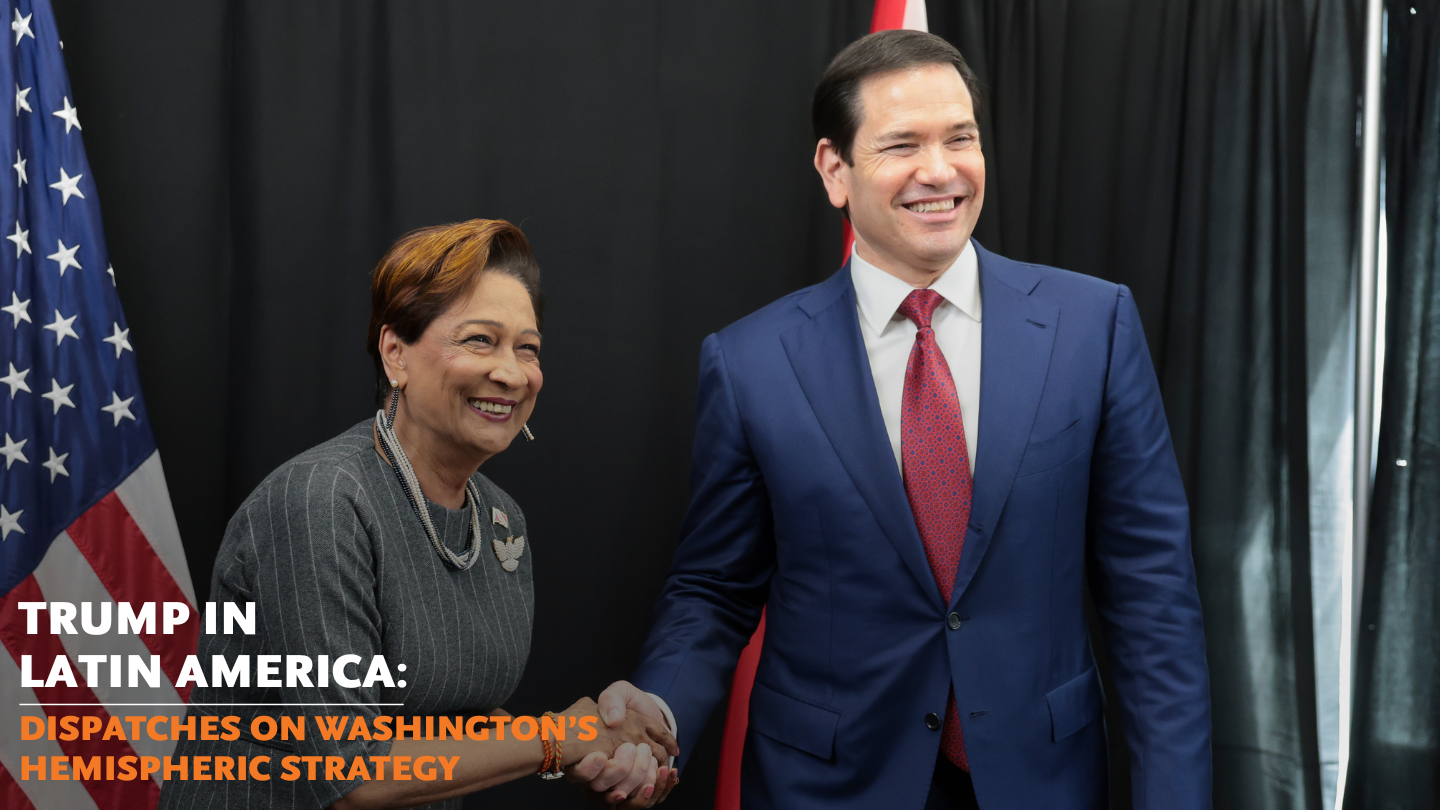WikiLeaks and U.S. Policy in the Americas
WikiLeaks and U.S. Policy in the Americas
WikiLeaks released 251,287 classified U.S. State Department diplomatic cables on November 28. AS/COA Online takes a look at leaks related to security and policy issues in Latin America and the Caribbean.
Updated December 9 - As the world now knows, WikiLeaks released 251,287 secret U.S. State Department diplomatic cables on November 28, distributing the entire cache—dating mostly from the past three years—to France’s Le Monde, Germany’s Spiegel, Spain’s El País, and the UK’s Guardian (who shared the data with The New York Times). Out of the total data dump of confidential communications between 274 embassies and the State Department in Washington, D.C., there are 15,652 cables classified “secret” and 101,748 labeled “confidential.”
In this resource guide, AS/COA Online focuses on leaks related to security and policy issues in Latin America and the Caribbean. The guide also offers a selection of multimedia features that present data and background information on WikiLeaks and the cables. Countries are ordered from most to fewest released cables and, within each section, from most recent to oldest.
- Policy Issues by Country
- Multimedia and Interactive Features
- Analysis of the Cables and Background on Wikileaks
| Policy Issues by Country |
Brazil (2,867 total cables*)
- 2009 Country Report on Terrorism: A December 2009 cable discussing Brazil’s counterterrorism efforts in the Argentina-Brazil-Paraguay tri-border area points out that, “in October 2009, the [Ministry of Foreign Relations] did admit, for the first time, that terrorists could become interested in Brazil because of the award of the 2016 Olympics to Rio de Janeiro.”
- The Brazil-Lebanon Connection and Muslims in Brazil's Largest City: A cable from November 2009 sent from the U.S. consulate in São Paulo say the Islamic community is Brazil is largely moderate, but ambassadors and Muslims in Brazil are wary of extremist elements.
- United States-Brazilian Defense Cooperation: In a November 9, 2009 meeting with U.S. officials, Brazilian Defense Minister Nelson Jobim "expressed support for moving forward with U.S.-Brazil security cooperation." In response to the meeting, the cable's author wrote that Brazil's "efforts to maintain peace [in the region] are sincere and should be encouraged."
- Security and Terrorism: Two cables from early 2008 argue that the Brazilian government publicly downplayed terrorist and security threats, while “away from the public spotlight, however, the [Government of Brazil] is a cooperative partner in countering terrorism and terrorist-related activities.” The leaks also suggest that potential pockets of Islamic extremism among segments of Brazil's large Muslim community are a security concern.
Mexico (2,593 – the widely reported number 2,285 refers specifically to cables relating to the U.S. embassy in Mexico City, as opposed to the embassy and all consulates combined). Go to Mexican daily El Universal's WikiLeaks portal for links to Mexico-related cables.
- “Zero-sum Competition” Between Agencies: “Mexican security institutions are often locked in a zero-sum competition in which one agency's success is viewed as another's failure, information is closely guarded, and joint operations are all but unheard of,” says the author of a cable dated January 29, 2010. The report laments the level of institutionalized corruption in Mexico and stresses the need to modernize the country’s military.
- U.S. Ambassador to Mexico Underscores Bilateral Security Successes: The top U.S. diplomat in Mexico writes in a cable from December 2009 that the Mexican security forces' successful operation against cartel leader Arturo Beltrán "is a clear victory for the Mexican Government and an example of excellent [U.S. Government-Government of Mexico] cooperation."
- State of Exception Considered: In a meeting outlined in an October 2009 cable, Mexico’s secretary of defense discussed the possibility of creating a state of exception in certain areas of the country to bolster the military’s ability to fight the cartels.
- Stepping up U.S. Presence in Latin America and Concerns over Venezuela: An October 2009 cable covers a meeting between the U.S. director of National Intelligence and Mexican President Felipe Canderón. The report reviews statements by Calderón indicating that Latin America "needs a visible U.S. presence" and that "[t]he U.S. should look at Latin America from an interconnected perspective." The cable goes on to say Calderón believes Washington should engage Brazil as a means to keep Venezuelan President Hugo Chávez in check, arguing that "there is a link among Iran, Venezuela, drugs, narcotics trafficking, and rule of law issues."
- U.S.-Mexico Cooperation against Cartels: A cable dated October 2009 details ways the United States and Mexico can deepen intelligence sharing and focus security efforts toward specific cities. Concern is expressed over the ability to sustain a military offensive against narcotraffickers into the next administration if measurable accomplishments are not achieved before President Felipe Calderón steps down.
Colombia (2,416 cables)
- Domestic Colombian Collaboration with the United States: La Silla Vacia reports on the cables that have surfaced from the U.S. embassy in Bogota as of December 9, written during President Álvaro Uribe’s time in office. The report groups the 18 cables into general points, including: U.S. plans to rescue U.S. nationals held by the FARC in Colombia, discussions behind the agreement to allow the United States use of Colombian military bases, detailed U.S. knowledge of negotiations between Bogota and Paris for the rescue of Ingrid Betancourt, U.S.-Colombian intelligence sharing on Venezuela and the FARC, the false positives scandal and corruption in the Colombian military, and undisclosed attempts at communication between the Colombian government and FARC leadership. Links to individual cables are available in the report.
Venezuela (2,340 cables)
- Nuclear Security: A 2009 cable from the embassy in Caracas quotes conversations with nuclear scientists who argued that Venezuela is currently unable to help “third countries (i.e. Iran)” develop nuclear weapons, and is “incapable of cooperation with Russia on the development, design, construction and operation of nuclear reactors.”
- Cuban Spies in Venezuela Have Chávez’s Ear: Cuban personnel cooperate and assist Chávez and the Venezuelan military, and Cuban intelligence advisors “frequently provide him with intelligence reporting unvetted by Venezuelan officers,” says a 2009 cable from Caracas. It goes on to say: “Venezuelan intelligence services are among the most hostile towards the United States in the hemisphere, but they lack the expertise that Cuban services can provide.”
Honduras (1,958 cables)
- June 2009 Coup Illegal: A July 2009 cable argues that, though state and political institutions correctly thought Zelaya had abused his powers in violation of the constitution, “the military and/or whoever ordered the coup fell back on what they knew—the way Honduran presidents were removed in the past: a bogus resignation letter and a one-way ticket to a neighboring country.”
Chile (1,464 cables)
- The United States Should Appreciate Latin American Political Nuances: In a January 12, 2010 lunch with U.S. Assistant Secretary of State Arturo Valenzuela and the U.S. ambassador to Santiago, President Michelle Bachelet of Chile said that "there are many moderates in Bolivia," and "cautioned against lumping all of Latin America's populist-leaning leaders together."
Bolivia (1,299 cables)
- Iran in Latin America: According to a cable reviewed by El País, Iran has been searching for Uranium deposits in Bolivia since at least 2006. However, Bolivian President Evo Morales says this is not true.
- EU Addresses Andean Coca Cultivation: In a cable dated November 10, 2009, U.S.-EU cooperation on counter-narcotrafficking efforts in Bolivia are addressed, with the author discussing a report by the EU Drugs Working Group expressing concern over a perceived increase in coca cultivation in the Andean country.
Nicaragua (1,264 cables)
- Nicaraguan Government Funding Channels: In several cables coming out of Managua during 2008, U.S. diplomats state they have “first-hand reports that [Government of Nicaragua] officials receive suitcases full of cash from Venezuelan officials during official trips to Caracas.” In a 2006 cable, officials state their belief that Nicaraguan government officials have access to revenue stemming from illicit sources.
Paraguay (1,148 cables)
- Terrorists in the Tri-border Area: A 2008 cable sent from the U.S. embassy in Brasilia expresses Brazilian concerns about a terrorist presence in the Argentina-Brazil-Paraguay tri-border area, where “terrorists may exploit the favorable conditions” present on the Paraguayan side of the border including “lax border controls, smuggling, drug trafficking, easy access to false documents and weapons, movement of pirated goods, [and] uncontrolled cash flows.”
Cuba (507 cables)
- ETA and FARC in Cuba: A 2009 cable sent by U.S. diplomats in Havana says that Cuba hosted members of the Basque terrorist group ETA and Colombia’s FARC guerillas. The cable also says that there is no evidence that Havana allowed these groups to plan terrorist operations against the United States.
| Multimedia and Interactive Features |
- El País presents a map of cables it has reviewed.
- The Guardian features an interactive map of its published cables, a graphic showing the top locations from which cables were sent, and a collection of other breakdowns of the U.S. embassy cables database.
- Spiegel offers an interactive map that shows where and when dispatches originated as well as the degree of classification.
- El Universal offers a portal of coverage of about WikiLeaks related to Mexico.
- Search the documents available on Cablegate with this “fulltext search” tool.
| Analysis of the Cables and Background on WikiLeaks |
- Spiegel online explains the origins of the diplomatic cables, their level of classification, the information they do and do not provide, and how to interpret codes in individual reports.
- In an interview with TIME’s managing editor on November 30, 2010, WikiLeaks’ Julian Assange discussed media scrutiny, the purpose of Cablegate, and legal concerns, saying, ”since 2006, we have been working along this philosophy that organizations which are abusive and need to be [in] the public eye."
- Read excerpts from U.S. Defense Secretary Robert Gates’ response to the intelligence leak at a November 30 Pentagon briefing. In response to questions regarding the effect the leaks will have on U.S. foreign affairs, Gates said the United States is “still essentially, as has been said before, the indispensable nation."
- Get updates from @WikiLeaks or follow the twitter conversation with #wikileaks and #cablegate.
*Based on AS/COA Online calculations using Guardian data.








